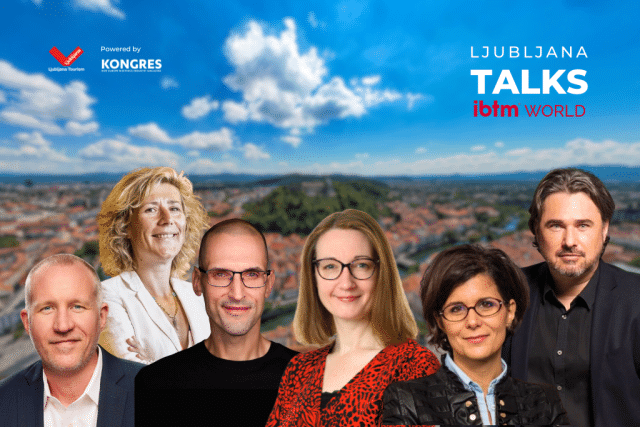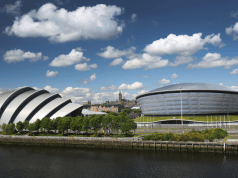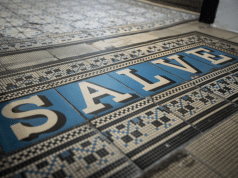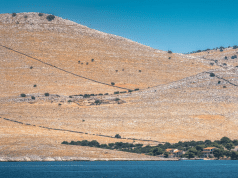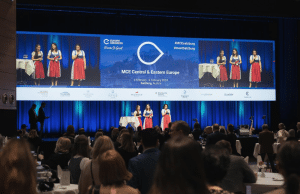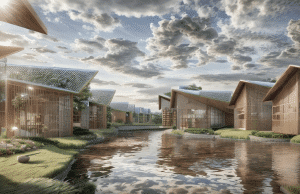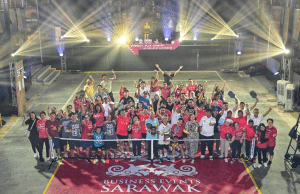Within the bustling corridors of IBTM World in Barcelona, the second day of Ljubljana Talks unfolded, presenting a series of discussions among industry experts in the events field.
Speakers from diverse backgrounds shared their perspectives, offering valuable insights into the various facets of the event industry. Their discussions provided a comprehensive overview, shedding light on the complexities inherent in this dynamic landscape.
The first speaker of the day, Zsuzsa Szegner, explained that it was a demanding year for her time with the Budapest Convention Bureau integration into visit Hungary system. But they already see the positive results also for their stakeholders. Their goal is to build up a “bid factory”.
To the question “Why Budapest”, Zsuzsa Szegner exposed the following: easy access, hospitality and friendliness of the local people (almost 50% of local people speak English), great food, a cosy atmosphere, and the thermal water.
With the new hotel brands coming to Budapest and investments in infrastructure, Budapest was already hosting some mega sports events such as the World Athletic Championship or the European football final. Zsuzsa said that It is a good message for meeting planners that Budapest is full of professionals who can deliver success not only for sports events but for all kinds of meetings. And this is the strategy behind hosting these huge events.
Up next was, Dejan Bogdanov. He brought some fresh news from Serbia, the first one being the re-opening of the Sava Congress Centre, which opens new opportunities for organising events in Belgrade. Dejan is convinced that Sava Center with the capacity for 4000 participants will put Belgrade back on the map for big congresses.
His answer to the question »Why Belgrade« is straightforward: it is still a new destination which can provide experiences, the destination which is completely something new, and a destination which gives really high quality to the clients. In Vekol DMC they act as ambassadors of Serbia.
Conversation with Dejan Bogdanov, who is running a DMC agency together with his wife Tanja Bogdanov, was also about creativity, emotions and experiences in events planning.
He sees the role of DMC in connecting all suppliers. “You can have great hotels, great infrastructure, but the DMC delivers experiences to the guests. Without the emotions, passion, and creativity, you cannot do anything.”
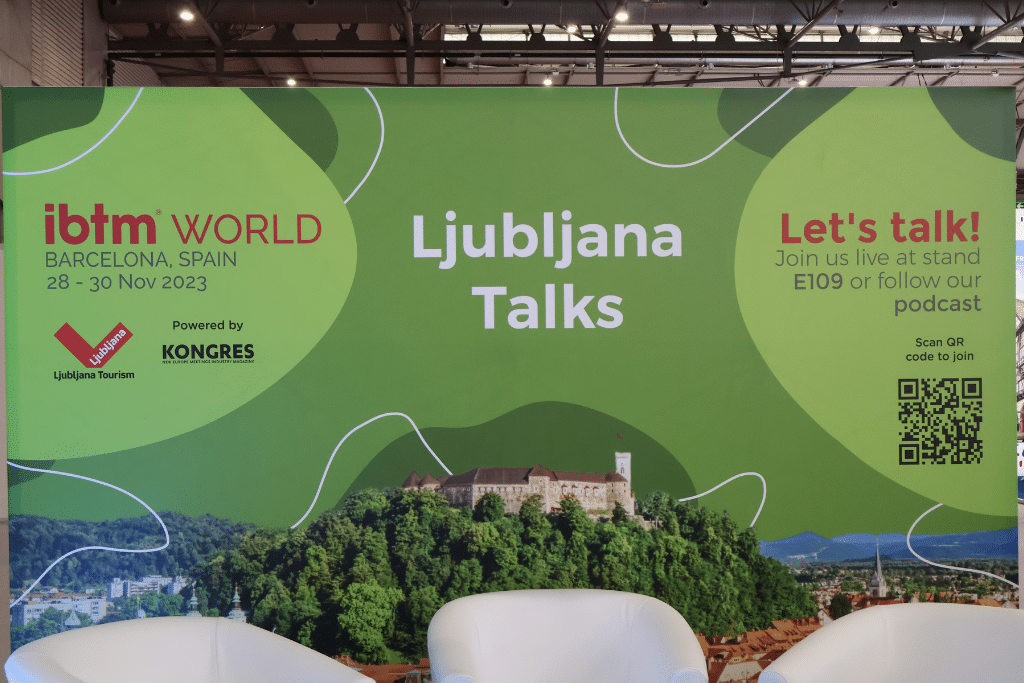
Drew S. Holmgreen was the next speaker. An interesting conversation tackled the hot topics in our industry, from meeting professionals’ education and networking, AI in events, sustainability and other challenges.
As a chief brand officer at MPI, the largest event professionals association, Drew’s main focus is on professional development, education and connections through networking.
“We all need to be advancing ourselves and the best way to do it is by learning and connecting. So the best associations will provide kind of the best in class for those and I feel that’s exactly what MPI does. And I think we are ahead of the curve in terms of our educational offerings. I think the big change that happened in the past three years is the youth movement and the refreshed workforce that we have in this industry. More than half of the professionals that you see walking around here are new to the industry. There’s a significant youth movement taking place and as an association, it’s our responsibility to take the education, take the networking and connect these individuals, upskill them, teach them the fundamentals of this industry so that they can be the next generation and push us forward.”
Gemmeke de Jongh followed from Visit Flanders Convention Bureau, highlighted a paradigm shift in tourism and congress management amid the pandemic. The focus transitioned from viewing events as an end goal to utilizing them as catalysts for a happier destination. They introduced “mentor congresses” aiming to leave positive legacies for locals, entrepreneurs, and visitors.
Additionally, Gemmeke is part of the BE Future Project, focusing on sustainability and innovation in the European meetings industry. Embracing technology like AI and digitalization, they aim to change event organization while acknowledging the industry’s carbon-heavy nature. Flanders adopted niche marketing strategies, preferring visitors who align with shared passions, aiming to avoid over-tourism.
Gemmeke emphasizes a need to balance economic growth with long-term societal impacts, measuring both aspects in event evaluation. “We need to embrace the digitalization of our society, seeing the benefits and integrating it. At this stage, we’re still learning.”
Afterwards, two guests joined Gorazd and Jan, Petra Stušek and Senthil Gopinath.
Both Petra and Senthil emphasized adaptability as crucial, leading to innovation and the need for industry-wide evolution. They highlighted how COVID spurred change, pushing for digital engagement and more frequent tech-based meetings.
Regarding industry value, integration with other sectors emerged as essential for long-term sustainability. Collaboration between associations proved pivotal in sharing best practices globally. They addressed the industry’s future: AI is seen as a complement, simplifying processes, while sustainability metrics aim for regeneration, understanding unique destination needs.
Key events like Summer School aim to educate newcomers, emphasizing the broader picture of the meetings industry. The ICA Congress highlighted best practices and future forecasts, promoting a purposeful and bright future for the industry.
In the live vs. digital debate, live events retain a unique energy, but digitalization remains a permanent fixture, prompting adaptation rather than competition between the two.
The emphasis remained on adaptability, collaboration, and leveraging technology to ensure the industry’s growth, sustainability, and educational endeavors.
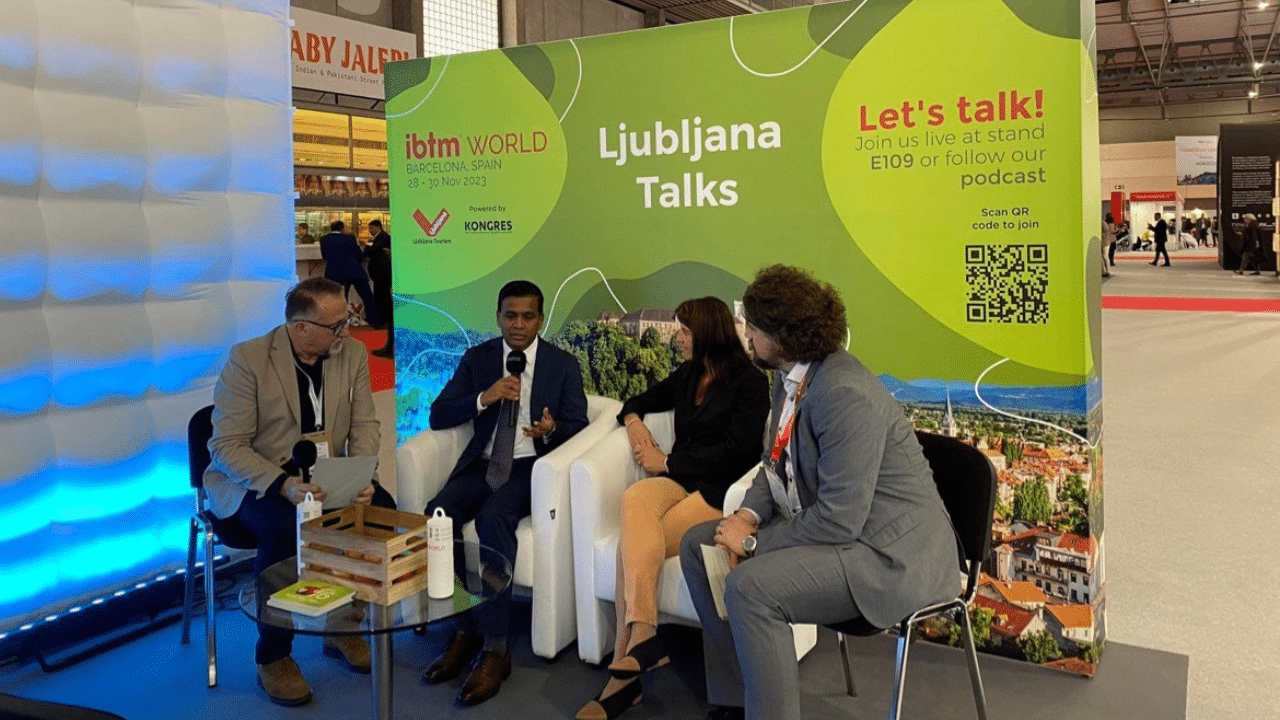
Next guest, the amazing Julius Solaris. Everyone in the event industry has heard his name.
Julius Solaris, the founder of Boldpush, delved into a comprehensive overview of the events industry’s evolution and transformation. Throughout the discussion, Solaris emphasized the necessity for the industry to transition beyond its traditional focus on real estate sales towards creating immersive and engaging event experiences. He passionately advocated for the significance of physical event attendance, portraying events as invaluable real-life social networks essential for comprehending the industry’s intricacies.
During the conversation, Solaris acknowledged the substantial potential of AI in events but highlighted a notable gap between the industry’s enthusiasm for AI solutions and their effective implementation. He shed light on the challenges in utilizing AI to solve critical issues, such as optimizing attendee matchmaking at events.
He recognized the influence of generational preferences, suggesting that the desires of younger generations for in-person engagements often transcend technological advancements.
Solaris placed significant emphasis on the importance of data-driven content strategies and holistic event experiences that extend beyond conventional business discussions. He stressed the necessity for continual innovation in event technology to address the industry’s evolving needs effectively.
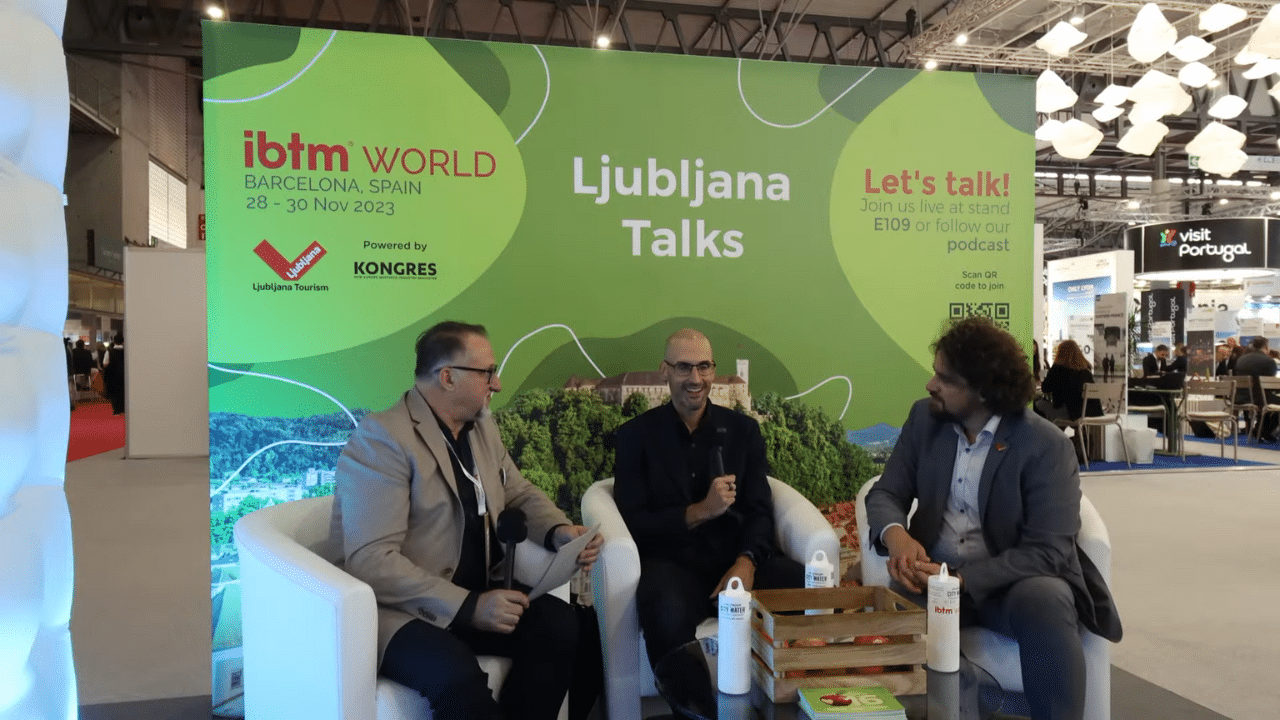
Christoph Tessmar was the next speaker, the former Director of the Barcelona Convention Bureau, who reflected on the significance of the annual IBTM event as a pivotal industry gathering. Having transitioned from the pharma industry to events, he drew parallels between their stress factors. Negotiations were underway to prolong Barcelona’s hosting of IBTM, indicating its remarkable success during his tenure.
Tessmar acknowledged the impact of technology on destination marketing, despite personal adaptability challenges. He highlighted recent innovations in Barcelona, such as refurbished venues and modernized stadiums, foreseeing their impact on future events. He discussed the challenges of balancing business and leisure tourism, advocating for better community communication.
An engaging talk with Sheron Ashton followed.
Sharon discussed her association, a global NGO representing rare disease patients, focusing on advocacy, empowerment, and partnerships. She highlighted events as pivotal, allowing targeted efforts towards EU policy changes. Reflecting on industry shifts, digitalization and a dispersed workforce shaped their strategies. While the association emphasizes core values like social justice, they haven’t measured these against events directly but aligned their content with Sustainable Development Goals (SDGs).
Embedding values into Requests for Proposals (RFPs), seeking healthy and sustainable venues became a priority. COVID accelerated their practical sustainability implementations. Sharon envisioned a hybrid future, aiming for more impactful discussions and inclusive events, leveraging AI for multi-language closed captioning. Tech posed challenges in streamlining operations while aiming to retain essential tools.
A successful event, she believed, engaged all senses, delivering a memorable experience. Challenges in event promotion amid noise were evident, particularly with hybrid options.
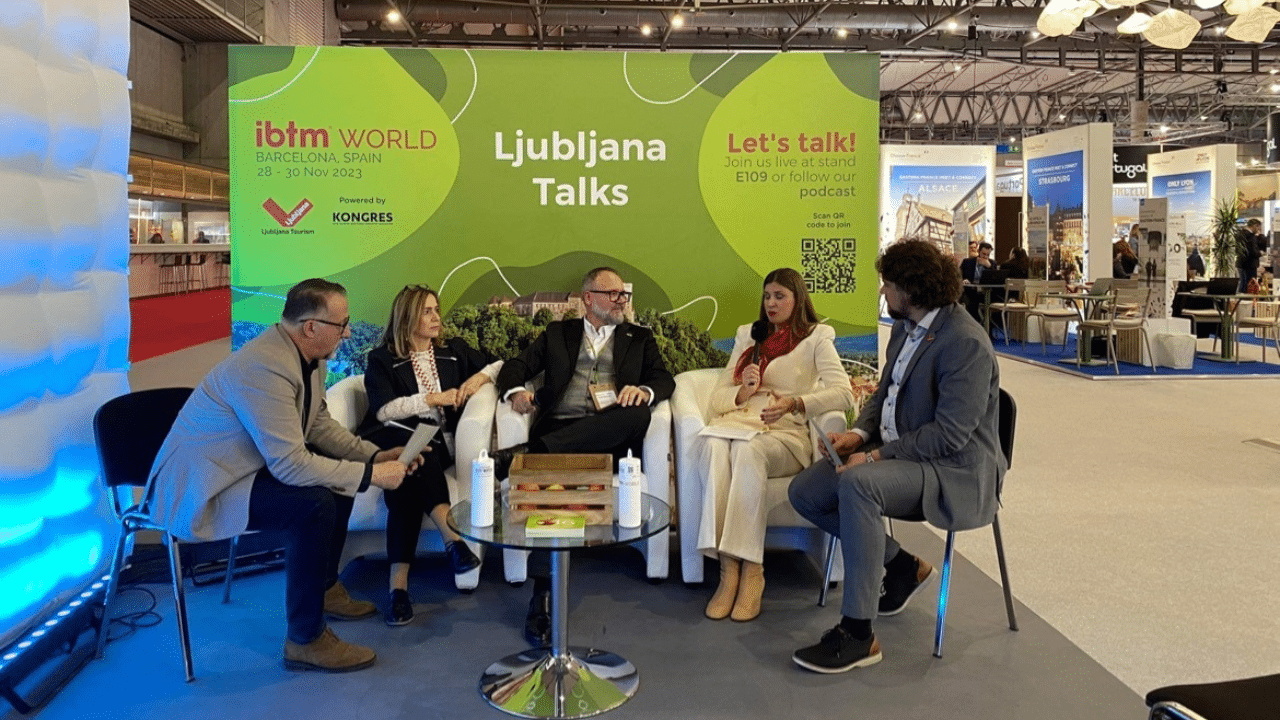
For the last Ljubljana talk of the day, Gorazd and Jan invited Aleksandra Maksimović from Montenegro Convention Bureau, Mirjana Resner from Croatia Convention Bureau and Fredi Fontanot, Slovenia Convention Bureau.
Focus of the conversation was on promotion of the region, competitive advantages and unique selling points. Their answers to the question: »What makes your destination special and what you are most proud about« show that these three destinations have many things in common.
Mirjana: our main attributes are nature and cultural heritage, gastronomy, wine, lots of options for activities in the nature but also in the cities. A long tradition in tourism with a great infrastructure. And the last, but not the least, very important safety, which is on a very high level in all our countries.
Aleksandra: I’m really proud of the growing number of events, Montenegro has proved itself to be a rising star of the European MICE universe, there has been steady progress in making Montenegro country which is increasingly coming on a radar of business travel professionals looking for a new incentive or conference destinations. Advantages are numerous, in addition to luxury hotels that we are really proud of, Montenegro offers outstanding natural historical and cultural experiences in a very small area and that is something that makes it quite unique destination.
Fredi: We are promoting Slovenia as a green country. On the other side it is attractive because of its compactness and diversity. What makes it special are people, professionals working in this industry. Sometimes we have a little bit issue to bring people in Slovenia for the first time, but when they come they just fell in love and they want to return.
Regarding the new trends and challenges all the speakers have agreed that AI will definitely transform the industry and embracing AI could lead to significant improvements, such as help with user experiences in planning activities or making operations more efficient.


